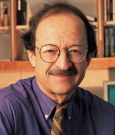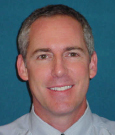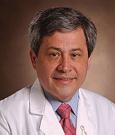Great progress is being made in the battle against cancer, but a renewed commitment of federal support for medical research is needed to speed its eradication, according to leaders of the American Association for Cancer Research (AACR), commenting in connection with a recent Senate hearing on “The Fight Against Cancer: Challenges, Progress, and Promise.”
Aging is the single biggest risk factor for developing cancer, with 75% of new cancer cases occurring in individuals over age 55, according to demographic experts. By the year 2030, the number of cancer cases in Americans over age 65 is expected to increase by 67%, compared with only an 11% increase in incidence for Americans younger than 65. However, while the majority of cancers occur in people 55 and older, the fact remains that hundreds of thousands of people under the age of 55 will also develop cancer each year.
Special Committee
Harold Varmus, MD, Director of the National Cancer Institute (NCI), and Thomas A. Sellers, PhD, MPH, Executive Vice President and Director of the Moffitt Research Institute at the Moffitt Cancer Center in Tampa, Florida, and a former member of the AACR Board of Directors, will participate in a panel of distinguished scientists, advocates, and cancer survivors at a Senate Special Committee on Aging congressional hearing.
“On behalf of the more than 34,000 members of the AACR, we wish to thank Senators Bill Nelson (D-FL) and Susan Collins (R-ME) for convening this important cancer research hearing to discuss the relationship of aging to cancer,” said Margaret Foti, PhD, MD (hc), Chief Executive Officer of the AACR. “The congressional hearing will highlight how cancer research is advancing at an amazing pace and is bringing new hope and significantly improved survival time to cancer patients everywhere,” she commented.
“However, in order to continue the progress that has been made and to speed the eradication of this disease that affects so many around the world, Congress must step up and provide a major increase in funding for cancer research now,” Dr. Foti said.
Bulge in Cancer Cases
“Because cancer is more likely to occur in older people, the aging of the baby boom generation is expected to create a bulge in cancer cases,” said Carlos L. Arteaga, MD, AACR President, Professor of Medicine and Cancer Biology, and Associate Director for Clinical Research at the Vanderbilt-Ingram Cancer Center of Vanderbilt University in Nashville, Tennessee.
“With the aging of our population, demographic experts predict there will be a dramatic increase in the number of cancer diagnoses and mortalities,” he said. “Continued research and development of new therapies and the funding necessary to do so are imperative, not only to continue to treat and even cure cancer in all patients, but also to meet the increased national need for improved care of older patients with this disease.”
Dr. Arteaga added, “Cancer already costs the country more than $215 billion per year in direct and indirect costs, and this burden will increase as the number of cases grows.” ■





